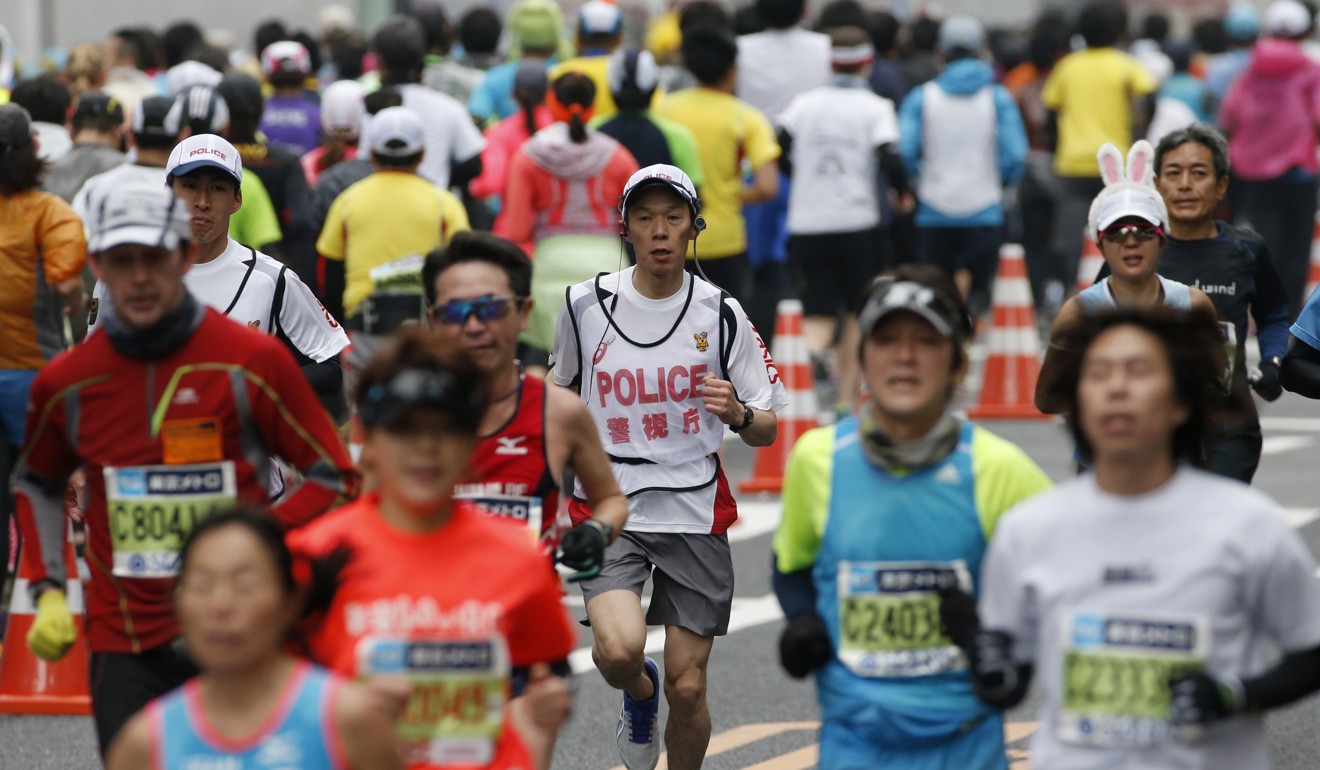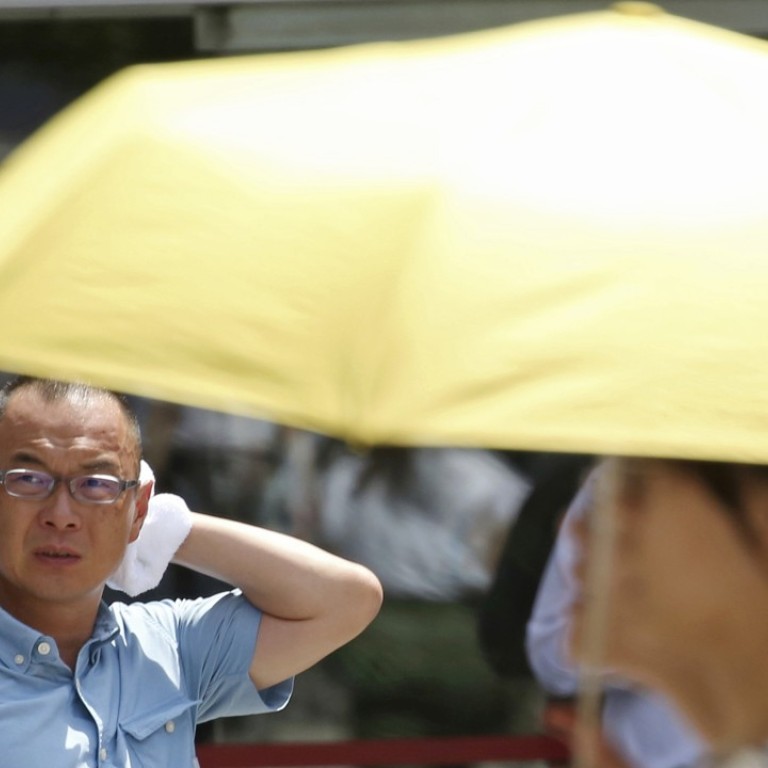
After deadly summer heatwave, Tokyo plans dawn starts for 2020 Olympic marathon and race walks
- Temperatures peaked above 40 degrees Celsius in the Japanese capital this summer, killing at least 138 people and sending thousands more to hospital
John Coates, the chairman of the Coordination Commission for the Games, said an Olympic expert medical and scientific committee has recommended the marathon begin at 5.30am or 6am, although a final decision still needs to be confirmed with the International Association of Athletics Federations.
Morning rugby matches will now start at 9am, 90 minutes earlier than first planned, while mountain biking events have been shifted an hour later to start at 3pm to reflect concerns about the heat, Yoshiro Mori, the president of Tokyo 2020 told a news conference.
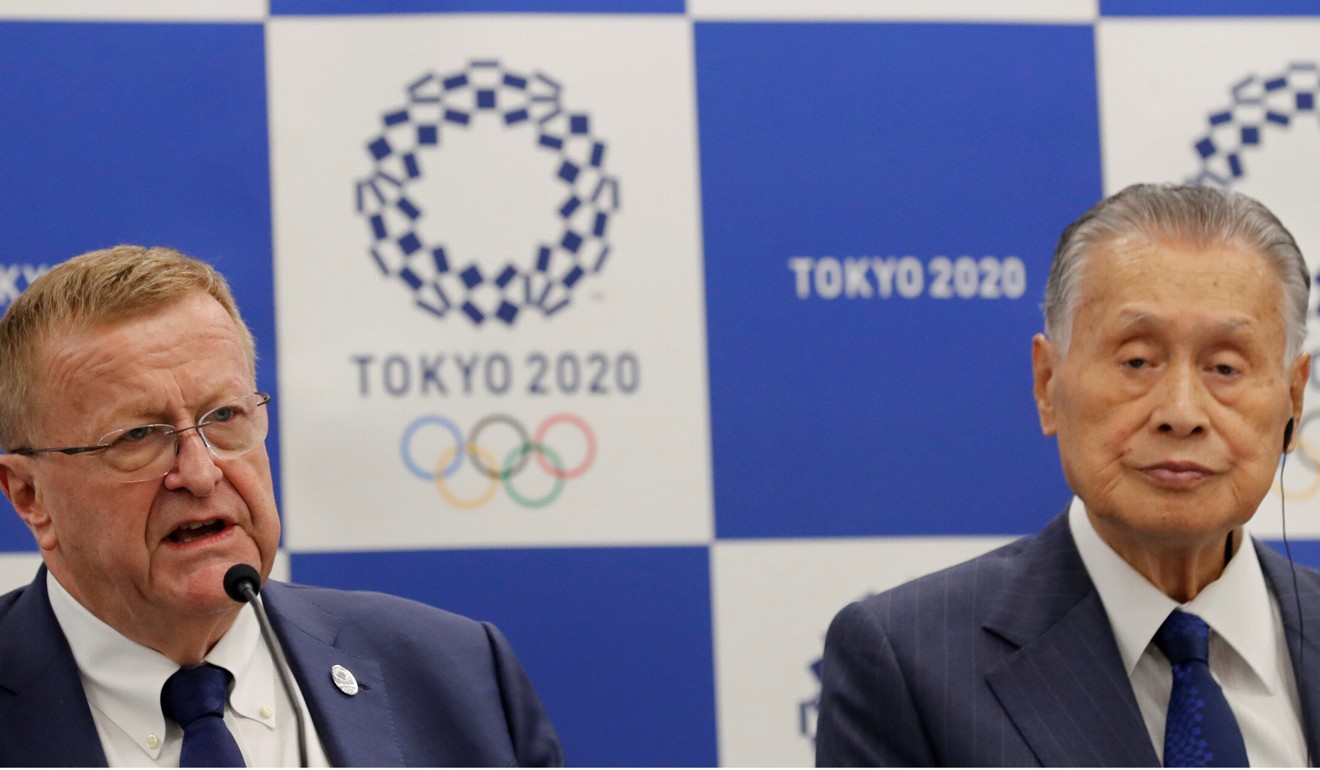
It was the second shift in the scheduling to combat the heat, only five months after Tokyo announced in July that the marathon start time would be brought forward to 7am, triathlons to 8am and race walking events would start between 6am and 7am.
We will do everything to ensure that they are not competing at risk
Tokyo’s weather in July and August has shot to the top of the agenda since a summer heatwave killed at least 138 people around the country, saw more than 70,000 people taken to hospital and was declared a national emergency. Temperatures peaked above 40 degrees Celsius (104 degrees Fahrenheit) in parts of Tokyo, while humidity exceeded 80 per cent.
Coates said the International Olympic Committee (IOC) took the issue very seriously. “It will continue to be front of mind for us, and for the organisers, and front of mind for the teams that are coming here,” Coates said. “We will do everything to ensure that they are not competing at risk or watching at risk.”
In its bid for the 2020 Games, Tokyo dramatically downplayed the issue, but has now been forced to act. “With many days of mild and sunny weather, this period provides an ideal climate for athletes to perform at their best,” it said at the time of its bid.
The IOC’s evaluation committee even appeared to buy the claims without a murmur, noting in its 2013 report that Tokyo’s dates had been selected “for climatic reasons.”
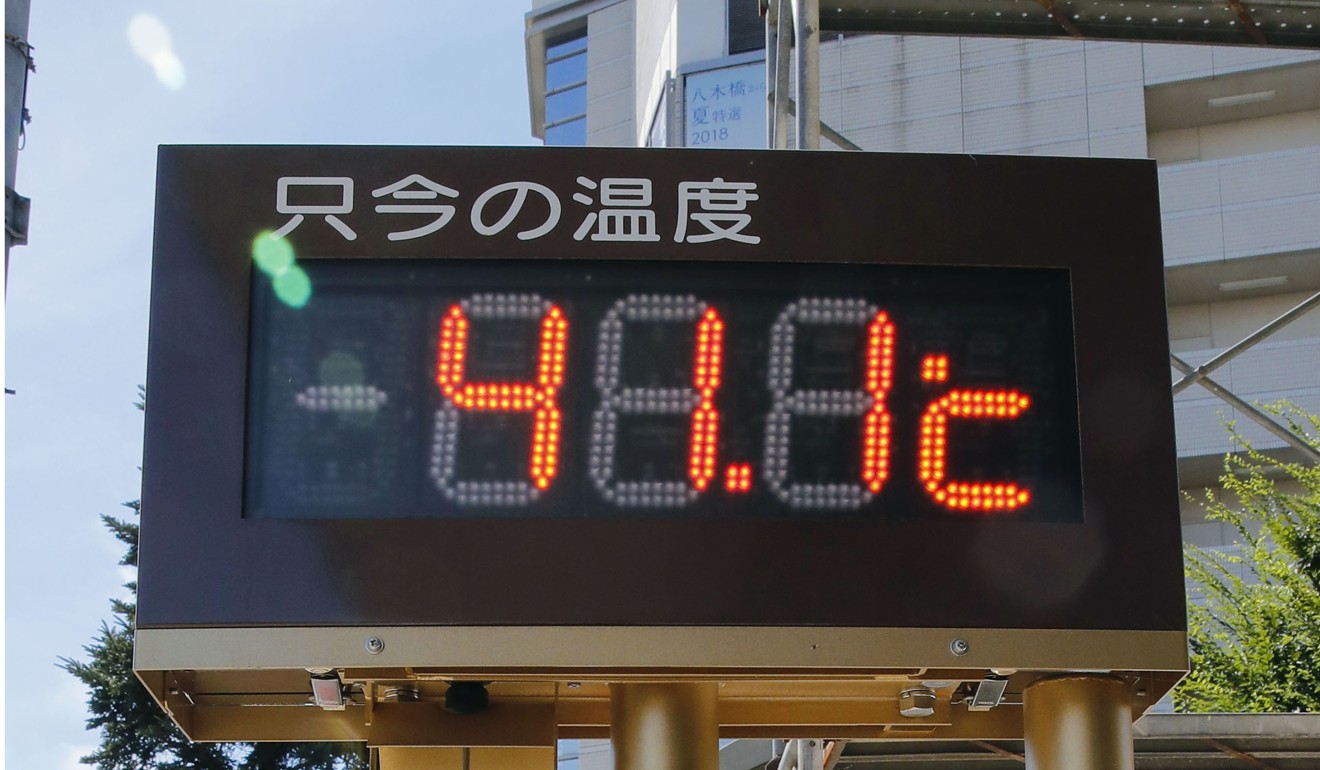
Mori said this summer had been “abnormal” and adjustments had to be made to reflect public opinion and medical advice. But these are intensely hot and humid months at the best of times, with maximum temperatures averaging 32 degrees Celsius over the past two decades, according to data from the Japan Meteorological Agency.
When Tokyo last hosted the Olympics in 1964, the games began in mid-October. But these days the IOC prefers July and August because it fits in better with broadcasters who pay billions of dollars in television rights, as the summer dates avoid clashes with other major sporting events.
Organisers had also discussed shifting the 2020 marathon to the evening, but broadcasters said that televising the race after the sun had set would be “problematic,” Toshiro Muto, CEO of Tokyo 2020 said.
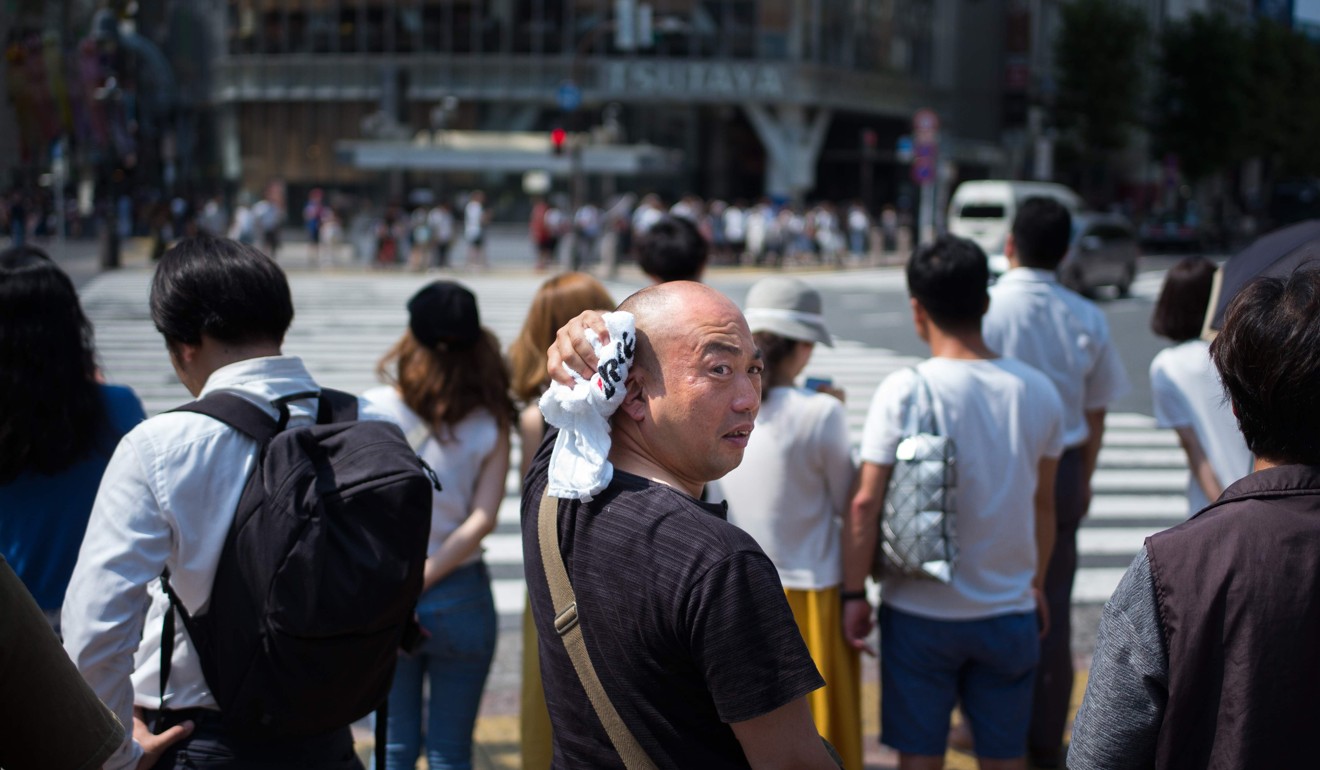
Tokyo plans to coat nearly 100 kilometres of roads, including the marathon course, with a resin-based surface that reflects infrared rays and lowers the surface temperature by as much as 8 degrees Celsius. Organisers have also promised to keep spectators cool with tents, fans and sprays of cooling mist. But more ambitious measures to combat the heat have either proved too expensive or too disruptive. An initial plan to build air conditioning into a new national stadium in Tokyo was abandoned because of rising costs, with a new design for the stadium instead supposed to encourage breezes to enter from outside.
In July, Mori, the committee president, even visited Prime Minister Shinzo Abe to suggest the entire nation shift to daylight saving time over the summer to combat the heat and allow earlier start times.
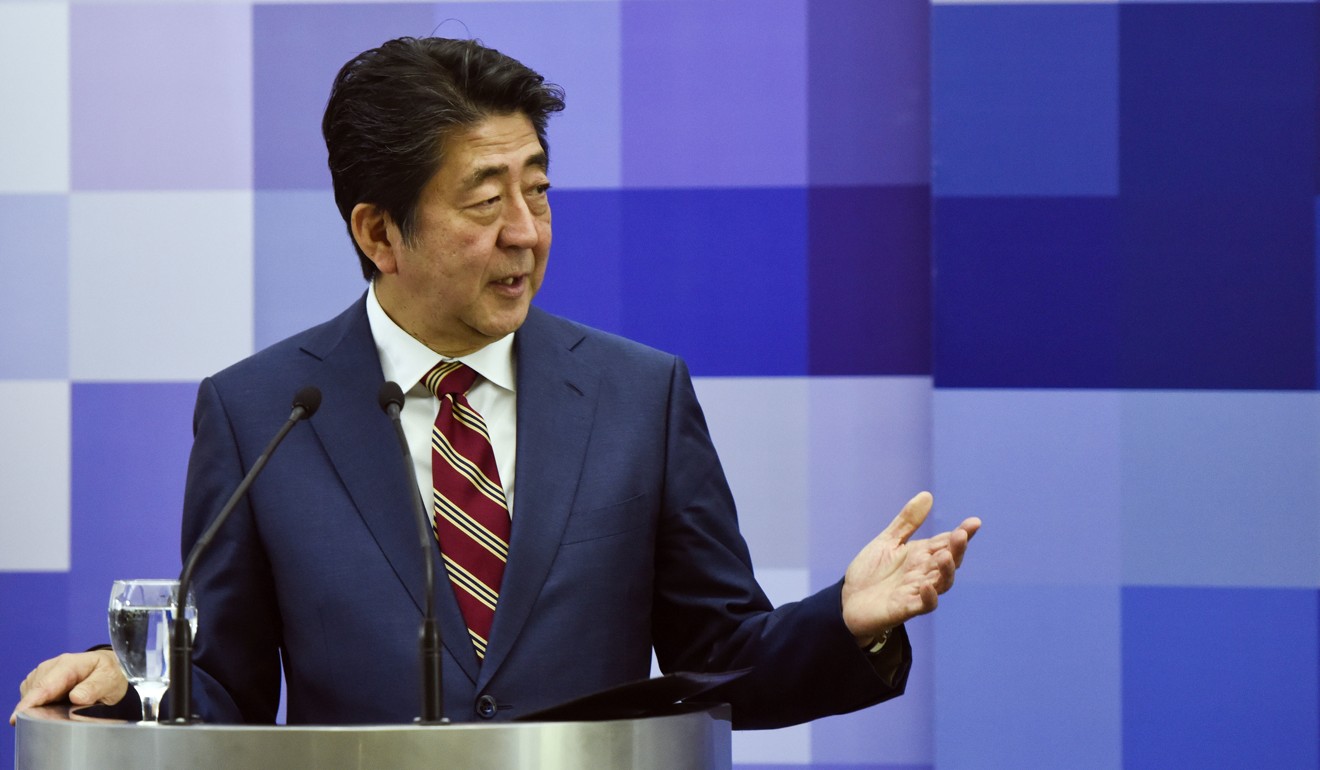
The government, though, wasn’t keen on the idea, arguing it would be disruptive to sleep and work. Daylight saving time was unpopular when introduced during the Allied Occupation of Japan in 1948, and was scrapped in 1952.
Makoto Yokohori, a professor of urban engineering at the University of Tokyo, said he has been warning about the problems for the past two years, but Japan’s Olympic Committee did not take him seriously at first. “The Tokyo marathon normally gets half to one million spectators. Even if 0.1 per cent of them gets ill from heat, that would amount to 500-1,000 people,” he said. “Tokyo currently does not have the capability to rescue that many people, though starting at six may mean fewer spectators.”
Normally, marathon races are not held beyond June
There really isn’t any way to race outside for two to three hours in Tokyo at the height of summer, he added. “The ideal conclusion is not to do it in Tokyo at that time of the year.”
Takaaki Matsumoto, a professor at the School of Health, Sport and Sciences at Chukyo University in Nagoya led research over the past two summers about the combined effect of heat and humidity at the racetrack.
He says that after 8.30am conditions move into a “high alert” status, when marathon running should be banned, according to Japan Sports Association Guidelines.
There were similar concerns when Atlanta hosted the games in 1996, and temperatures soared above 100 degrees Fahrenheit in the opening weekend. Temperatures in Athens reached similar levels.
“We knew it would be a problem the moment Tokyo was chosen,” Matsumoto said.” I am also a marathon runner. Normally, marathon races are not held beyond June. I got a sense of urgency, and that’s how I began scientific research.”
